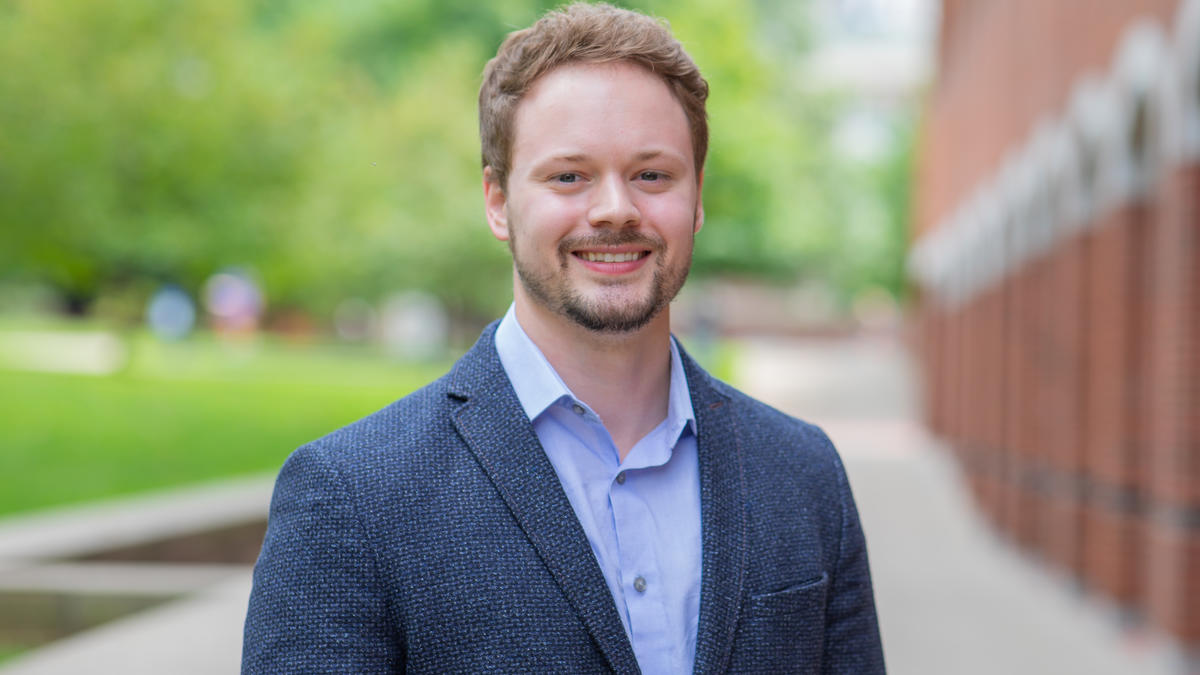Julius Schoop joined the Department of Mechanical Engineering (ME) and Institute for Sustainable Manufacturing as Assistant Professor in August 2018. Dr. Schoop is is a materials science and manufacturing process expert (B.S., Chemical Physics, Centre College, 2011; Ph.D., University of Kentucky, 2015) with combination of deep applied and theoretical knowledge of advanced manufacturing processes, particularly machining and finishing processes such as grinding and polishing. Following his doctoral studies in the Department of Materials Science and Engineering, Dr. Schoop was a postdoctoral research associate at the Institute for Sustainable Manufacturing (ISM) at the University of Kentucky.
In 2016, Julius Schoop joined TechSolve, Inc. in Cincinnati, OH as Program Manager and Principal Engineer. At TechSolve, Dr. Schoop worked on wide range of applied manufacturing projects, from developing and commercializing ultrasonic minimum quantity lubrication (MQL) technology for sustainable, near-dry machining processes, to serving as Principal Engineer on major machinability and process development studies. Through his experience as process expert consultant for both small/medium manufacturers as well as large companies such as GE Aviation, Dr. Schoop has established a broad range of practical skills and in-depth knowledge of advanced jet turbine and automotive powertrain machining and finishing processes.
In 2018, Dr. Schoop joined the University of Kentucky’s ME Dept. and ISM as Assistant Professor of Sustainable Manufacturing. Along with his experimental and analytical research in machining and finishing processes, Dr. Schoop teaches both graduate and undergraduate courses in the ME Department and Manufacturing Systems Online Master’s Program (MFS) on topics ranging from materials and manufacturing systems to advanced machining and finishing processes for the automotive, biomedical and aerospace industries.
Through in-situ, multi-sensor experimental observation using digital image correlation in ultra-high speed (~1 million frames/second) microscopy, the Schoop research group is building industrially relevant predictive models of the complex behaviors of materials experience during finish machining and grinding/polishing operations. It is envisioned that through improved and readily deployable closed-loop, sensor-based process models, highly scalable manufacturing processes such as machining, polishing and grinding can not only be used to impart dimensional accuracy and surface quality, but also to induce tailored surface properties, such as compressive residual stress profiles and micro/nano-textured surfaces. Moreover, ongoing research on eliminating the need for ineffective and environmentally harmful coolants/lubricants through techniques such as cryogenic hybrid cooling, an emerging technology developed at ISM, has shown great promise to improve process sustainability.
In addition to process modeling, Dr. Schoop currently also developing novel manufacturing processes with great application potential in the aerospace, automotive and biomedical industries. These new processes are capable of up to 50 times higher metal removal rates in hard materials than milling and grinding, while also offering improved surface quality and tool-life; for more information on this proprietary research, please contact Dr. Schoop directly.
